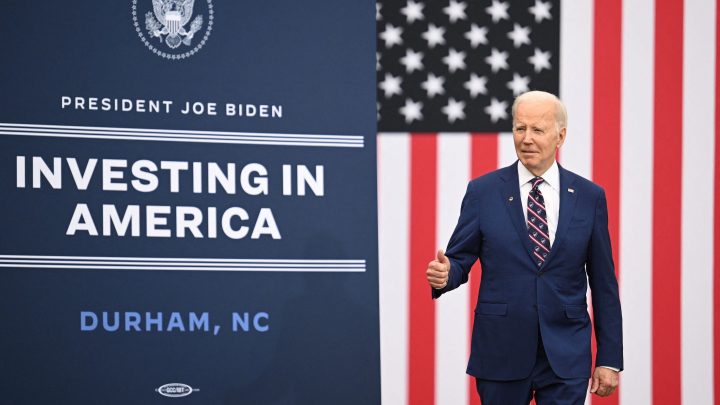
The US is known for designing chips, not making them. Can the CHIPS Act funding change that?
The US is known for designing chips, not making them. Can the CHIPS Act funding change that?

Nvidia, one of the country’s most valuable companies by market capitalization, reported stronger than expected quarterly results this afternoon. The semiconductor company is known for designing GPUs, the chips that support artificial intelligence. Nvidia is headquartered in California, but its largest manufacturing partner is TSMC in Taiwan.
The majority of all chips are manufactured in Asia, but the federal government would love for the U.S. to get a bigger piece of that chipmaking pie. This week, as part of the CHIPS and Science Act, the Biden administration announced it’s awarding $1.5 billion to chipmaker GlobalFoundries to expand its manufacturing stateside.
Even if they’re made elsewhere, the U.S. is far and away the global leader in designing advanced chips, said Harvard Business School professor Willy Shih.
“Whether they are pure digital chips, or chips for radios that go into phones, or what have you,” he said.
Shih — who’s also an unpaid advisor to the Commerce Department on the CHIPS Act — pointed out that of the $39 billion in the law to incentivize making chips here, this latest award to GlobalFoundries is the biggest we’ve seen to date.
Still, he said the private sector is going to have to invest a lot of its own money to build each new chip factory, called a foundry, and then fill it with diamond saws and advanced lithography tools.
“And then of course, once you do that, you also need the people to run it,” Shih said.
Speed matters here, because the U.S. is competing with other countries who are offering their own incentives to chipmakers, said Emily Kilcrease, director of the energy, economics and security program at the Center for a New American Security.
“Europe has its own version of the CHIPS act that they’re trying to move forward,” she said. “There is going to be potential competition amongst governments as they’re handing out these subsidies.”
Still, chipmakers here in the U.S. are making important advances, said Nina Turner, a research director at IDC.
“Now they’re approaching the physical limits of being able to be smaller, so now they’re going 3D,” she said. “So they’re building in the z-axis, not just the x and y axis.”
Turner said that will increase chip speeds and reduce power consumption, making those chips more attractive to the companies that need them.
There’s a lot happening in the world. Through it all, Marketplace is here for you.
You rely on Marketplace to break down the world’s events and tell you how it affects you in a fact-based, approachable way. We rely on your financial support to keep making that possible.
Your donation today powers the independent journalism that you rely on. For just $5/month, you can help sustain Marketplace so we can keep reporting on the things that matter to you.











